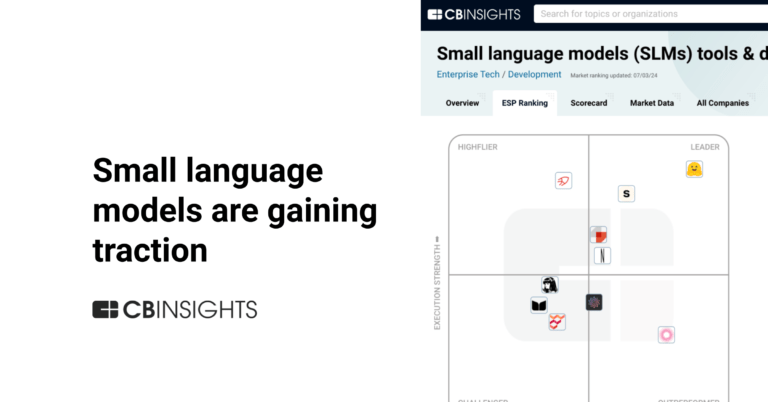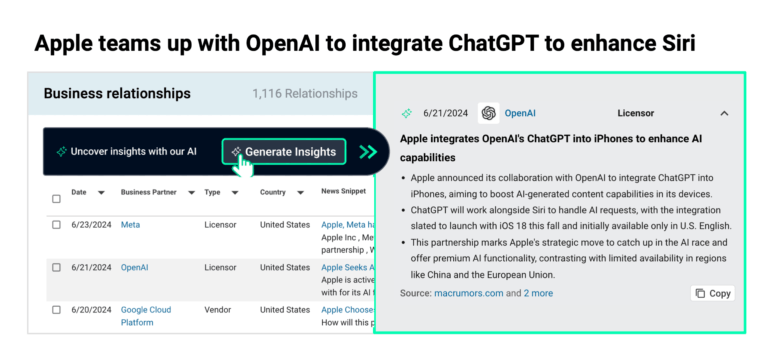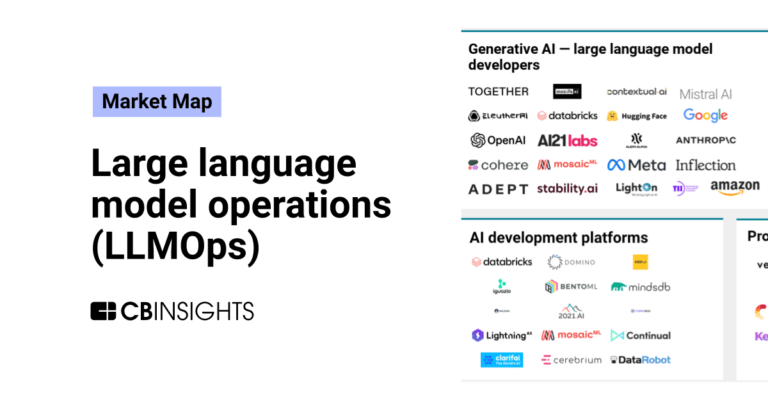
Hugging Face
Founded Year
2016Stage
Series D | AliveTotal Raised
$398.92MValuation
$0000Last Raised
$235M | 1 yr agoRevenue
$0000Mosaic Score The Mosaic Score is an algorithm that measures the overall financial health and market potential of private companies.
-21 points in the past 30 days
About Hugging Face
Hugging Face focuses on advancing artificial intelligence through collaboration in the technology sector. It provides a platform for machine learning professionals to build, share, and collaborate on models, datasets, and applications. The company offers solutions that cater to various modalities, including text, image, video, audio, and 3D, as well as enterprise-grade services for teams requiring advanced AI tooling with enhanced security and support. It was founded in 2016 and is based in Paris, France.
Loading...
ESPs containing Hugging Face
The ESP matrix leverages data and analyst insight to identify and rank leading companies in a given technology landscape.
The Small Language Models (SLMs) tools and development market focuses on the creation, optimization, and deployment of smaller-scale language models. These models, while less complex and resource-intensive than large language models (LLMs) like GPT-4, offer several advantages including cost-effectiveness, faster deployment times, and reduced computational requirements.
Hugging Face named as Leader among 11 other companies, including Sarvam AI, Arcee, and Sakana AI.
Loading...
Research containing Hugging Face
Get data-driven expert analysis from the CB Insights Intelligence Unit.
CB Insights Intelligence Analysts have mentioned Hugging Face in 16 CB Insights research briefs, most recently on Jul 19, 2024.
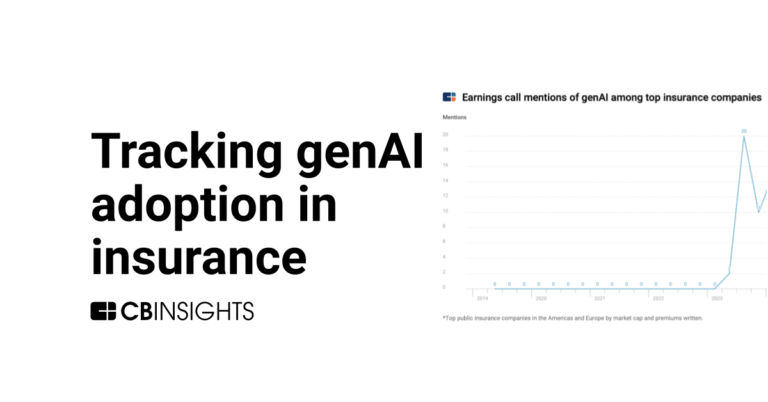
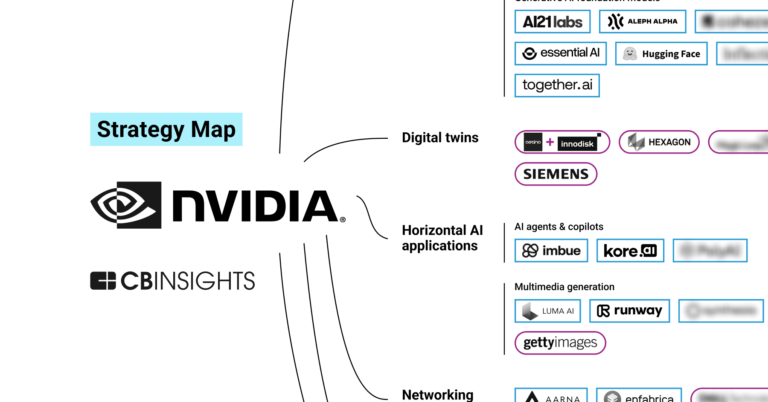

Apr 2, 2024 report
AI 100: The most promising artificial intelligence startups of 2024
Feb 28, 2024 report
The Celebrity VC Index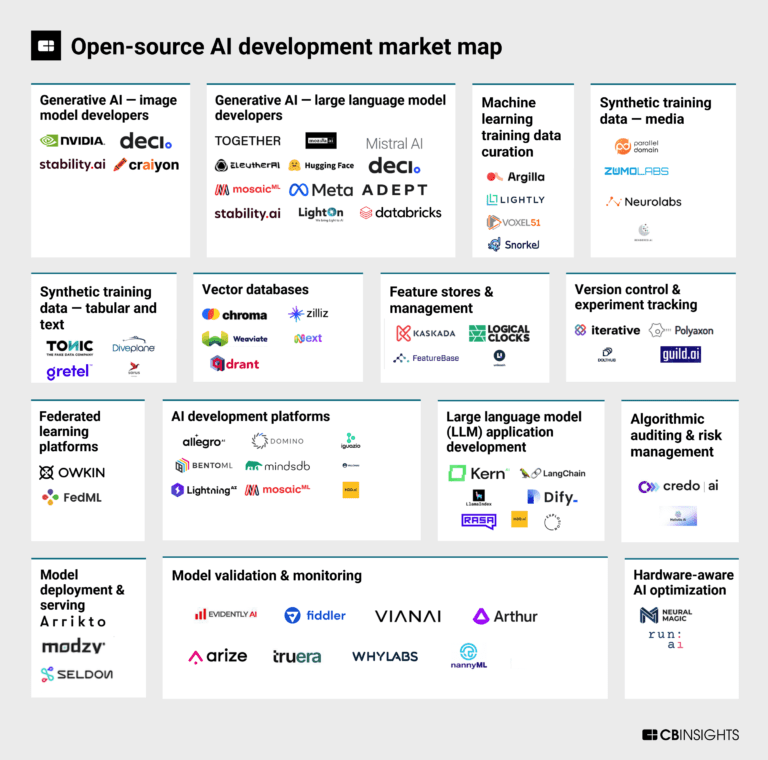
Oct 13, 2023
The open-source AI development market mapExpert Collections containing Hugging Face
Expert Collections are analyst-curated lists that highlight the companies you need to know in the most important technology spaces.
Hugging Face is included in 6 Expert Collections, including Unicorns- Billion Dollar Startups.
Unicorns- Billion Dollar Startups
1,244 items
Artificial Intelligence
14,769 items
Companies developing artificial intelligence solutions, including cross-industry applications, industry-specific products, and AI infrastructure solutions.
AI 100
400 items
The winners of the 4th annual CB Insights AI 100.
Generative AI 50
50 items
CB Insights' list of the 50 most promising private generative AI companies across the globe.
Generative AI
862 items
Companies working on generative AI applications and infrastructure.
AI 100 (2024)
100 items
Latest Hugging Face News
Sep 18, 2024
US policymakers have an ‘everything everywhere all at once’ approach to regulating artificial intelligence, with bills that are as varied as the definitions of AI itself. By Stephanie Arnett/MIT Technology Review | Public Domain/rawpixel More than 120 bills related to regulating artificial intelligence are currently floating around the US Congress. They’re pretty varied. One aims to improve knowledge of AI in public schools, while another is pushing for model developers to disclose what copyrighted material they use in their training. Three deal with mitigating AI robocalls, while two address biological risks from AI. There’s even a bill that prohibits AI from launching a nuke on its own. The flood of bills is indicative of the desperation Congress feels to keep up with the rapid pace of technological improvements. “There is a sense of urgency. There’s a commitment to addressing this issue, because it is developing so quickly and because it is so crucial to our economy,” says Heather Vaughan, director of communications for the US House of Representatives Committee on Science, Space, and Technology. Because of the way Congress works, the majority of these bills will never make it into law. But simply taking a look at all the different bills that are in motion can give us insight into policymakers’ current preoccupations: where they think the dangers are, what each party is focusing on, and more broadly, what vision the US is pursuing when it comes to AI and how it should be regulated. That’s why, with help from the Brennan Center for Justice, which created a tracker with all the AI bills circulating in various committees in Congress right now, MIT Technology Review has taken a closer look to see if there’s anything we can learn from this legislative smorgasbord. As you can see, it can seem as if Congress is trying to do everything at once when it comes to AI. To get a better sense of what may actually pass, it’s useful to look at what bills are moving along to potentially become law. A bill typically needs to pass a committee, or a smaller body of Congress, before it is voted on by the whole Congress. Many will fall short at this stage, while others will simply be introduced and then never spoken of again. This happens because there are so many bills presented in each session, and not all of them are given equal consideration. If the leaders of a party don’t feel a bill from one of its members can pass, they may not even try to push it forward. And then, depending on the makeup of Congress, a bill’s sponsor usually needs to get some members of the opposite party to support it for it to pass. In the current polarized US political climate, that task can be herculean. Related Story The White House’s voluntary AI commitments have brought better red-teaming practices and watermarks, but no meaningful transparency or accountability. Congress has passed legislation on artificial intelligence before. Back in 2020, the National AI Initiative Act was part of the Defense Authorization Act, which invested resources in AI research and provided support for public education and workforce training on AI. And some of the current bills are making their way through the system. The Senate Commerce Committee pushed through five AI-related bills at the end of July. The bills focused on authorizing the newly formed US AI Safety Institute (AISI) to create test beds and voluntary guidelines for AI models. The other bills focused on expanding education on AI, establishing public computing resources for AI research, and criminalizing the publication of deepfake pornography. The next step would be to put the bills on the congressional calendar to be voted on, debated, or amended. “The US AI Safety Institute, as a place to have consortium building and easy collaboration between corporate and civil society actors, is amazing. It’s exactly what we need,” says Yacine Jernite, an AI researcher at Hugging Face. The progress of these bills is a positive development, says Varun Krovi, executive director of the Center for AI Safety Action Fund. “We need to codify the US AI Safety Institute into law if you want to maintain our leadership on the global stage when it comes to standards development,” he says. “And we need to make sure that we pass a bill that provides computing capacity required for startups, small businesses, and academia to pursue AI.” Following the Senate’s lead, the House Committee on Science, Space, and Technology just passed nine more bills regarding AI on September 11. Those bills focused on improving education on AI in schools, directing the National Institute of Standards and Technology (NIST) to establish guidelines for artificial-intelligence systems, and expanding the workforce of AI experts. These bills were chosen because they have a narrower focus and thus might not get bogged down in big ideological battles on AI, says Vaughan. “It was a day that culminated from a lot of work, we've had a lot of time to hear from members and stakeholders. We've had years of hearings and fact finding briefings on artificial intelligence,” says Representative Haley Stevens, one of the democratic members on the House committee. Many of the bills specify that any guidance they propose for the industry is nonbinding and that the goal is to work with companies to ensure safe development rather than curtail innovation. For example, one of the bills from the House, the AI Development Practices Act, directs NIST to establish “voluntary guidance for practices and guidelines relating to the development … of AI systems” and a “voluntary risk management framework.” Another bill , the AI Advancement and Reliability Act, has similar language. It supports “the development of voluntary best practices and technical standards” for evaluating AI systems. “Each bill contributes to advancing AI in a safe, reliable, and trustworthy manner while fostering the technology's growth and progress through innovation and vital R&D,” committee chairman Frank Lucas, an Oklahoma Republican, said in a press release on the bills coming out of the House. “It’s emblematic of the approach that the US has taken when it comes to tech policy. We hope that we would move on from voluntary agreements to mandating them,” says Krovi. Related Story There are plenty of reasons to be wary of AI, but let’s not dismiss the possibilities it offers for improving accessibility. Avoiding mandates is a practical matter for the House committee. “Republicans don’t go in for mandates for the most part. They generally aren’t going to go for that. So we would have a hard time getting support,” says Vaughan. “We’ve heard concerns about stifling innovation, and that’s not the approach that we want to take.” When MIT Technology Review asked about the origin of these concerns, they were attributed to unidentified “third parties.” And fears of slowing innovation don’t just come from the republican side. “What's most important to me is that the United States of America is establishing aggressive rules of the road on the international stage,” says Representative Stevens. “It’s concerning to me that actors within the Chinese Communist Party could outpace us on these technological advancements.” But these bills come at a time when big tech companies have ramped up lobbying efforts on AI. “Industry lobbyists are in an interesting predicament—their CEOs have said that they want more AI regulation, so it’s hard for them to visibly push to kill all AI regulation,” says David Evan Harris, who teaches courses on AI ethics at the University of California, Berkeley. “On the bills that they don’t blatantly try to kill, they instead try to make them meaningless by pushing to transform the language in the bills to make compliance optional and enforcement impossible.” “A [voluntary commitment] is something that is also only accessible to the largest companies,” says Jernite at Hugging Face, claiming that sometimes the ambiguous nature of voluntary commitments allows big companies to set definitions for themselves. “If you have a voluntary commitment—that is, ‘We’re going to develop state-of-the-art watermarking technology’—you don’t know what state-of-the-art means. It doesn’t come with any of the concrete things that make regulation work.” "We are in a very aggressive policy conversation about how to do this right, and how this carrot and stick is actually going to work," says Representative Stevens, indicating Congress may put into place red lines in the future for AI companies not to cross. There are other interesting insights to be gleaned from looking at the bills all together. Two-thirds of the AI bills are sponsored by Democrats. This isn’t too surprising, since some House Republicans have claimed to want no AI regulations, believing that guardrails will slow down progress. The topics of the bills (as specified by Congress) are dominated by science, tech, and communications (28%), commerce (22%), updating government operations (18%), and national security (9%). Topics that don’t receive much attention include labor and employment (2%), environmental protection (1%), and civil rights, civil liberties, and minority issues (1%). The lack of a focus on equity and minority issues came into view during the Senate markup session at the end of July. Senator Ted Cruz, a Republican, added an amendment that explicitly prohibits any action “to ensure inclusivity and equity in the creation, design, or development of the technology.” Cruz said regulatory action might slow US progress in AI, allowing the country to fall behind China. On the House side, there was also a hesitation to work on bills dealing with biases in AI models. “None of our bills are addressing that. That’s one of the more ideological issues that we’re not moving forward on,” says Vaughan. Lead Democrat on the House committee, Representative Zoe Lofgren told MIT Technology Review, "It is surprising and disappointing if any of my Republican colleagues have made that comment about bias in AI systems. We shouldn’t tolerate discrimination that’s overt and intentional any more than we should tolerate discrimination that occurs because of bias in AI systems. I’m not really sure how anyone can argue against that." One issue that may rise above the partisan divide is deepfakes. The Defiance Act, one of several bills addressing them, is cosponsored by a Democratic senator, Amy Klobuchar, and a Republican senator, Josh Hawley. Deepfakes have already been abused in elections; for example, someone faked Joe Biden’s voice for a robocall to tell citizens not to vote. And the technology has been weaponized to victimize people by incorporating their images into pornography without their consent. “I certainly think that there is more bipartisan support for action on these issues than on many others,” says Daniel Weiner, director of the Brennan Center’s Elections & Government Program. “But it remains to be seen whether that’s going to win out against some of the more traditional ideological divisions that tend to arise around these issues.” Although none of the current slate of bills have resulted in laws yet, the task of regulating any new technology, and specifically advanced AI systems that no one entirely understands, is difficult. The fact that Congress is making any progress at all may be surprising in itself. “Congress is not sleeping on this by any stretch of the means,” says Representative Stevens. “We are evaluating and asking the right questions and also working alongside our partners in the Biden Harris administration to get us to the best place for the harnessing of artificial intelligence.” hide
Hugging Face Frequently Asked Questions (FAQ)
When was Hugging Face founded?
Hugging Face was founded in 2016.
Where is Hugging Face's headquarters?
Hugging Face's headquarters is located at 9 rue des Colonnes, Paris.
What is Hugging Face's latest funding round?
Hugging Face's latest funding round is Series D.
How much did Hugging Face raise?
Hugging Face raised a total of $398.92M.
Who are the investors of Hugging Face?
Investors of Hugging Face include Amazon, Qualcomm Ventures, Salesforce Ventures, NVentures, Intel Capital and 38 more.
Who are Hugging Face's competitors?
Competitors of Hugging Face include Anthropic, Cohere, FriendliAI, Stability AI, Argilla and 7 more.
Loading...
Compare Hugging Face to Competitors

AI21 Labs operates as an artificial intelligence (AI) lab and product company. The company offers a range of AI-powered tools, including a writing companion tool to assist users in rephrasing their writing, and an AI reader that summarizes long documents. It also provides language models for developers to create AI-powered applications. It was founded in 2017 and is based in Tel Aviv-Yafo, Israel.

Cohere operates as a natural language processing (NLP) company. It offers services that enable businesses to integrate artificial intelligence (AI) into products, with capabilities such as generating text for product descriptions, blog posts, and articles, understanding the meaning of text for search and content moderation, and creating summaries of text and documents. It primarily serves the enterprise sector, providing AI solutions that can be customized to suit various use cases, domains, or industries. It was founded in 2019 and is based in Toronto, Canada.

One AI is a company that specializes in generative artificial intelligence (AI) within the technology sector. The company offers services such as language analytics, customizable AI skills, and the processing of text, audio, and video data into structured, actionable insights. It primarily serves sectors such as customer service, e-commerce, media, healthcare, and government. It was founded in 2021 and is based in Ramat Gan, Israel.
01.AI provides open-source AI models and applications that support human productivity. Its offerings include open-source and proprietary language models capable of processing text in multiple languages, with a particular emphasis on English and Chinese. 01.AI primarily serves the technology and platform development sectors with a vision of integrating AI. The company was founded in 2023 and is based in Haidian, China.

SuperAGI focuses on developing open-source infrastructure for artificial general intelligence (AGI) within the technology and artificial intelligence industry. The company offers a framework for building, managing, and running autonomous agents, providing tools and models that enable developers to create sophisticated agent workflows, augment agents with custom knowledge, and extend agent capabilities with an extensive library of tools. SuperAGI primarily serves the technology and AI development sectors. It was founded in 2023 and is based in Palo Alto, California.

Anthropic is an AI safety and research company that specializes in developing advanced AI systems. The company's main offerings include AI research and products that prioritize safety, with a focus on creating conversational AI assistants for enterprise use. Anthropic primarily serves sectors that require reliable and interpretable AI technology. It was founded in 2021 and is based in San Francisco, California.
Loading...
